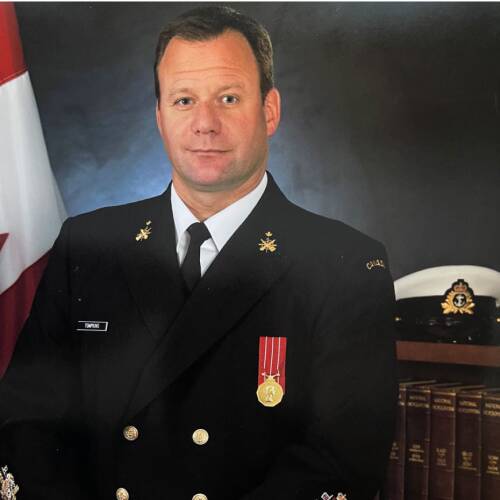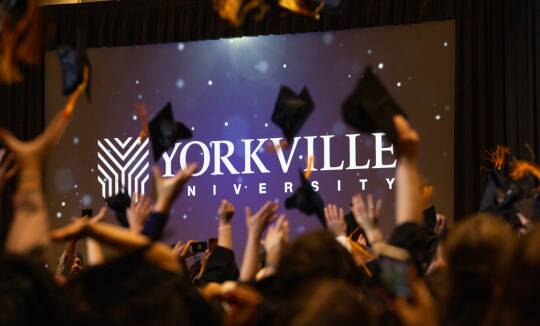
Doctor of Counselling and Psychotherapy (Online)
Highest Degree Credential in the Field
The Doctor of Counselling and Psychotherapy degree is intended to bring clinical practitioners at the forefront of the emergence of counselling and psychotherapy as a distinct profession from other health and helping professions. The primary objective of the DCP degree program is to educate therapists with competencies beyond those expected at the master’s level, with a focus on leadership, social justice and cultural competence.
Applied Research Approach to Learning – The program brings the tools of applied scholarship to examine and address problem areas of practice in counselling and psychotherapy.
Your Path to Leadership – Graduates of the DCP gain the knowledge and skills required to help define the identity of the counselling and psychotherapy profession and to be leaders in the establishment of the profession across Canada.

1st
Doctorate of its kind in Canada


New Term Starts Soon
Starts:
September, May, January
Campus:
100% Online*
Duration:
In as few as 3.5 years**
*Includes both asynchronous and synchronous learning activities and opportunities.
**With full course load, year-round study and/or approved transfer credits. Contact an Admissions Advisor for more information.
Program Benefits
Career Outcomes
The Doctor of Counselling and Psychotherapy is the highest degree credential offered in Canada, allowing graduates of the program to:
- Redefine the identity of the counselling and psychotherapy profession
- Educate, mentor, and supervise masters-level counsellors and psychotherapists
- Assume senior leadership positions and roles within the professional field of counselling and psychotherapy.
A variety of exciting and fulfilling outcomes are available to graduates of this program, including careers such as:
-
Psychotherapist Supervisor
-
Psychotherapist Educator
-
Leadership Roles in Psychotherapy
-
Leadership Roles in Counselling
Faculty
Meet the Program Chair

Dr. Danelle Kabush
Dr. Danelle Kabush brings over 20 years of experience as an educator, researcher, practitioner, and consultant. She began her career in applied sport psychology, motivation science, and athlete mental health, and has since held diverse roles in clinical counselling and sport psychology consulting. Her professional background includes work as a Mental Performance Consultant with the Canadian Sport Institute, Private Practice Clinician/Consultant, and Sessional Instructor. More recently, she has held a variety of multifaceted leadership positions in higher education, serving as Academic Program Director, Capstone Research Coordinator, Internship Coordinator, and Faculty Member.
Dr. Kabush holds a PhD in Psychology and an MA in Human Kinetics (Sport Psychology) from the University of Ottawa, as well as a BSc in Psychology and a BA in French from the University of Washington, where she was an NCAA All-American in Track and Field. She is a Registered Clinical Counsellor (RCC) with the BCACC and a Certified Mental Performance Consultant (CMPC) with AAASP/CSPA. Danelle is passionate about the transformative experience of graduate education and is eager to leverage her previous leadership experience and collaborate with the Yorkville team to continue to build the Doctorate program. She is committed to fostering a culture of trust, open communication, and continuous improvement.
Doctor of Counselling and Psychotherapy Course Leads
Admission Requirements
The Doctor of Counselling and Psychotherapy online degree is administered from our New Brunswick campus.
Applicants to the Doctor of Counselling and Psychotherapy program are required to provide the following:
- Official master’s transcript and proof of a master’s degree*
- Provide proof of two years of post-master’s counselling experience. Click here to download the form.
- Resume and a 700- to 1000-word letter of intent
- Two letters of reference from professional or academic sources, click here to download form.
- Completed online application
- Application fee of $150 (CAD)
*All official transcripts need to be sealed, stamped and sent directly from the issuing institution to our Admissions Services Department for evaluation.
In addition, applicants are required to have:
- A master’s program cumulative grade point average (GPA) of at least 3.3 on a 4.0 or a 4.3 scale, or the equivalent on other grading scales. Some applicants may be admitted on a probationary basis if their cumulative GPA is between 3.0 and 3.3.
- The clinical training component of the program requires students to be professionally active and have clients. Normally, this requirement is met by the applicant being employed as a counsellor or psychotherapist, either full-time or part-time. Alternatively, the applicant might be professionally active as a full- or part-time volunteer counsellor or psychotherapist.
A master’s degree in counselling, psychotherapy, marriage and family therapy, pastoral counselling, applied psychology, nursing, occupational therapy, and social work, or an equivalent credential from a recognized university.
Yorkville University reserves the right to refuse admission and ask admitted students to withdraw from the program in special circumstances.
For full details of admissions requirements, please see the Academic Calendar.
Admission to the Doctor of Counselling and Psychotherapy program is on a selective basis. Meeting minimum requirements does not guarantee admission. In keeping with the program’s emphasis on diversity and social justice, preference may be given to admitting qualified applicants who are members of Indigenous, marginalized and underserved communities.
English Language Requirements
English is the primary language of instruction at Yorkville University.
Applicants who have obtained their qualifying master’s in a language other than English are required to submit confirmation of an official test of ability to work and study in English.
Such tests include:
- Confirmation of a Canadian Academic English Language – Computer edition (CAEL-CE) with a score of at least 70 (No component proficiency score below 60).
- Confirmation of an official Test of English as a Foreign Language (TOEFL) score of 95 (Internet-based version).
- Confirmation of a Canadian Language Benchmark (CLB) overall score of 9 (No component score below 8).
- International English-Language Test System (IELTS) with an overall bandwidth of 7.0.
- Confirmation of a Canadian Test of English for Scholars and Trainees (CanTest) with a minimum overall bandwidth of 4.5.
- Confirmation of a score on any other test of English language proficiency that equates to Level C1 or higher of the Common European Framework of Reference for Languages (CEFR).
- Confirmation of a score equivalent to these scores on another test of English language proficiency recognized by and acceptable to the University.
- Confirmation of a Duolingo minimum score of 130 (No subscore below 120).
- Confirmation of Pearson Test of English (PTE) Academic score of 65 (no skills area score below 55)
Canadian applicants who completed their qualifying master’s degree in French, but completed another post-secondary degree, certificate, or diploma or their secondary education in English, are exempted from the requirement to provide tested confirmation of English language proficiency.
The University reserves the right to refuse admission to any student whose proficiency of English is questionable and to ask any student whose written work is below acceptable standards to withdraw from the program.
Tuition and Fees
Course Descriptions
The rigorous curriculum of the Doctor of Counselling and Psychotherapy includes the following courses:
* Please note courses marked with the asterisk* have mandatory synchronous components offered through an online video platform that are scheduled by the instructors at the start of the course. While we strive to accommodate students’ schedules whenever possible, these particular courses may not offer flexibility in choosing or changing synchronous session times. We appreciate your understanding and adaptability with scheduling, as these synchronous components are designed to optimize the overall learning experience by facilitating real-time interaction with instructors and peers.
** Students are enrolled in DCP 8806 and working on their Applied Scholarship Project for the duration of their program.
3 Credits
This course examines some of the key components related to the professional identity of counselling within a Canadian context. It situates counselling within the broader mental health context and explores the similarities and differences that exist between the mental health specialties. It also examines the role that ethics plays in shaping professional identity.
3 Credits
This course prepares students to apply scholarship to the practice and problems of counselling and psychotherapy. It familiarizes students with a variety of advanced methods in applied research. Students learn to read advanced scholarly work fluently, think about it critically, and understand how it can be applied to practical problems in the profession.
3 Credits
This course serves several functions. It includes (a) ongoing development and integration of personal theory into practice, (b) regular development and discussion of each student’s Personal Practice Portfolio, (c) regular contact with and advisement from the students’ core faculty member, (d) preparatory steps for the Applied Scholarship Project (ASP), (e) preliminary drafts of all components of the ASP, and (f) final defence of the ASP. The course spans the duration of the Doctor of Counselling and Psychotherapy program and meets during the break between teaching sessions each term.
3 Credits
This course provides students with an advanced appreciation of personal characteristics needed to be effective in a variety of practice settings. The course includes self-assessment and professional mental health evaluation of the professional therapist’s overall personal adjustment and capacity to maintain healthy counselling relationships. Counsellor contributions to the therapeutic alliance are emphasized.
3 Credits
In this course, learners engage in several learning activities that are designed to facilitate awareness of reflective practice in counselling and psychotherapy. During this course, students will spend one hour per week receiving mentorship from a faculty member.
3 Credits
This course provides students with an advanced understanding of contemporary theories and models of counselling and psychotherapy. Students develop critical perspectives of the theories that guide psychotherapy practice and explore research evidence for each approach. Students are encouraged to develop case conceptualizations based on specific theories.
3 Credits
This course focuses on helping students develop advanced competencies in several areas of practice. This includes enhancing skills in case conceptualization and deepening understanding in two of the student’s preferred theories of intervention. During this course, students will spend one hour per week receiving mentorship from a faculty member.
3 Credits
This course reviews the major theories of supervision for counsellors and psychotherapists. While the course is primarily designed to help prepare therapists to become supervisors across various work settings, it also reviews what supervisees should expect from the supervision process. Overcoming supervisor-supervisee working alliance ruptures is also covered. Recent research on therapy supervision is reviewed and discussed.
3 Credits
During this course, students expand their ability to situate a client’s problem within the broader context of their personality, experiences, culture, and background. They deconstruct several case studies and analyze models used to guide case conceptualization across a variety of contexts. This course also includes an introduction to concepts, processes and styles of mentorship, and offers students the opportunity to gain experience in providing mentorship to other counsellors-in-training.
3 Credits
This course provides students with advanced understanding and implementation of evidence-based practices. Students work in consultation teams to identify best practices for particular client groups, localize or adapt interventions for multicultural effectiveness, and design empirically-supported treatment programs for implementation and evaluation.
3 Credits
This course further enhances students’ ability to organize and synthesize complex client-centred information. Students delve deeply into models and variations of case presentations and explore the discourse around “special” populations and the benefits and drawbacks of categorizing people based on shared characteristics. During the course, doctoral students guide counsellors-in-training at the masters’ level through weekly mentorship meetings and consider developmental stages of trainees, learner needs at each phase, and strategies for assessment, coaching, and role modelling.
3 Credits
This course provides students with an advanced understanding of assessment considerations, case conceptualization, and therapy planning within the counselling/psychotherapy profession. Students learn about the appropriate use of different assessment tools. The limitations of formalized assessment as used by psychiatrists and psychologists are examined. A nuanced and idiosyncratic approach is favoured that is strengths-based.
3 Credits
This course provides students with opportunities to build upon their current competencies in counselling and psychotherapy. The topics explored include counsellor identity development, theoretical orientation in counselling and psychotherapy, the therapeutic relationship, and advanced case conceptualization.
3 Credits
This course focuses on advanced applications of major systems theory and transformational models. The emphasis is couples and family therapy, although systemic perspectives may be applied to individual and community issues as well. Skills in systemic and transformational interventions within a multicultural context will be acquired.
3 Credits
The purpose of this course is to equip students with the advanced skills needed to contribute to the direct practice of integrated behavioural health in primary care. Students become knowledgeable about the roles of behavioural health providers working in primary care settings; theories and models of care; and cross-cultural issues. They develop skills in engagement, assessment, intervention planning and implementation, and practice evaluation. Because the populations served in primary care settings span the spectrum of severity in both the physical and behavioural health dimensions, students develop competencies in engaging and supporting patients across a range of health conditions.
3 Credits
The course will address contemporary approaches to program development and project management in counselling, educational, and psychological settings. This graduate seminar will be guided by a model for research, development, and utilization associated with innovation and planned change. The student will plan and organize a project, product, or service particular to a selected problem, population, and setting. Future trends and developmentally-oriented prevention projects will be highlighted.
3 Credits
This course focuses on counselling diverse clients, particularly those typically associated with belonging to underserved communities. The approach follows the culture-infused counselling approach of notable Canadian scholars Drs. Sandra Collins and Nancy Arthur.
3 Credits
This course focuses on evaluating current research in the areas of professional leadership and advocacy for the counselling/psychotherapy profession. Students will evaluate principles and apply methods of leadership and advocacy strategies to foster professional development and growth within complex and dynamic systems and organizations.
3 Credits
This course builds upon DCP 8533 (Practitioner Leadership Development I) and focuses on the understanding and application of adult learning theories and research within the counselling/psychotherapy profession. Students will apply adult learning theories and best practices to foster professional identity, leadership, and expertise within the counselling/psychotherapy profession.
Testimonials
FAQ
The title ‘Doctor’ is a protected title by the various provincial health acts, meaning that the governments decide who can use the title doctor. In clinical practice, this is typically restricted to physicians, optometrists, clinical psychologists, chiropractors, etc. For the time being, this means that graduates of the doctorate will not be able to refer to themselves as Doctors in clinical settings but will be able to do so in non-clinical settings, such as educational settings. These laws apply to other professional doctorates in Canada, including doctorates in social work, occupational therapy, etc. This does not, however, prevent you from accurately stating the name of your degree upon completion of the program, which is Doctor of Counselling and Psychotherapy.
The term “accredited” is not a term post-secondary institutions use in Canada. Canadian Universities are granted designation status by the province where they operate – in this case from the Government of New Brunswick, Post-Secondary Education, Training and Labour. As such, the Doctor of Counselling and Psychotherapy is recognized as an approved program here in Canada and throughout North America. We cannot speak on behalf of external bodies, such as regulatory colleges, professional associations, insurance companies, or provincial government ministries, so questions need to be directly addressed to them.
No. Applicants to the Doctor of Counselling and Psychotherapy program must possess two-years post-master’s experience with a minimum 1,600 clinical experience hours.
Yorkville University’s Doctor of Counselling and Psychotherapy degree is completed part-time over ten terms, taking just over three years to complete. You can be working full-time, part-time, or even seeing clients as a volunteer during the program. The essential time that you need to have clients is during terms 2 through 5 while you are receiving mentoring (terms 2 and 3) and then providing mentoring (terms 4 and 5) to masters’-level students.




















